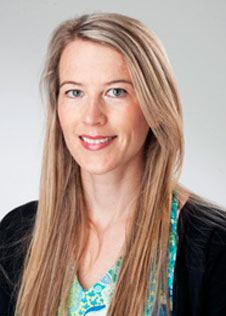
Annika Seddon
As an undergraduate biology student, Annika Seddon decided she wanted to do postgraduate research in the field of cancer. She was therefore thrilled to find an Honours course at the University of Otago, Christchurch which allowed her to work as part to its dedicated cancer research group.
Annika completed a one-year Bachelor of Biomedical Sciences with Honours course working with the Mackenzie Cancer Research Group, and is now undertaking a PhD at the Christchurch campus.
She says being able to work with patient samples during her Honours year, and beyond, was a particular highlight.
“I didn't want to do science just for the sake of it. I wanted to work with patient samples and work with people on projects that could potentially make a difference to patients' lives.”
After completing the Honours programme, Annika is now undertaking her PhD with the Centre for Free Radical Research. She is being supervised by three very experienced scientists, Professors Mark Hampton, Tony Kettle and Dr Margaret Currie.
Annika says she regards her supervisors as 'the dream team' because of their depth of knowledge and research achievements. Dr Currie is part of the Mackenzie Cancer Research Group and Professors Kettle and Hampton are directors of the Centre for Free Radical Research.
“The level of supervision I receive is phenomenal. I feel that everyone, not just my supervisors, is interested in my research and keen to help. I have never felt lost in the lab,'' she says.
“The Christchurch campus is small and intimate but still has these amazing world-renowned researchers who supervise postgraduate students. When I first arrived here I couldn't believe how lucky I was!”
Annika's PhD project is looking at the different ways neutrophils die, and their impact on tumour biology.
“There's a lot that remains unclear about how neutrophils die, particularly in the tumour microenvironment. Neutrophils contain powerful oxidants and enzymes that can be damaging to surrounding tissues and therefore the way they die is important as it can be either explosive and pro-inflammatory or contained and anti-inflammatory. Since chronic inflammation has been linked to the initiation and progression of several human cancers, if we better understand the different molecular players and stimuli involved in neutrophil death, we could potentially exploit these pathways and develop new targets for anti-cancer therapies."